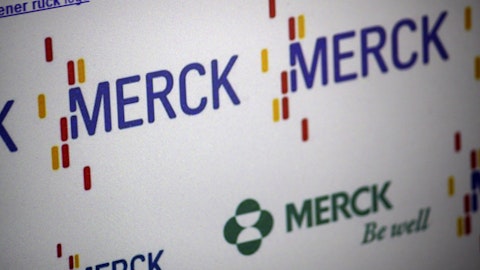For small cap biotech companies, an FDA approval can make or break a stock.
As 2016 came to a close, two biotech stocks in particular – Vericel Corp (NASDAQ:VCEL), a small cap stock with an $88 million market cap, and Synergy Pharmaceuticals Inc (NASDAQ:SGYP) ($1.14 billion market cap) – were being monitored closely by investors as a January FDA approval inched close.
Sure enough, when Vericel announced FDA approval on December 14, the stock surged by 57.69% to a $134 million valuation, adding close to $50 million in market value overnight – huge for a stock its size. (Synergy also earned January approval for its constipation drug Trulance).
Follow Synergy Pharmaceuticals Inc. (NASDAQ:SGYP)
Follow Synergy Pharmaceuticals Inc. (NASDAQ:SGYP)
Receive real-time insider trading and news alerts
Steven Christmann, managing principal of Christmann & Gutermann, a $6 billion investment fund, says the FDA phase 2 is one major deterrent in going for biotech stocks — even if the drug has a widespread need in the market place.
“It’s very speculative and even if the drug is groundbreaking, in my eyes at least, the FDA issue makes it problematic from an investment standpoint,” Christmann says. “By streamlining this process, as President Trump put it, would make fund managers look closer at some tech stocks out there, particularly in the small-to-mid range.”
Outside of the big pharmaceuticals who can afford it, a big issue behind the FDA approval process is the staggering costs to even get it to the shelves, estimated at close to $3 billion, Motley Fool reported (2) last year.
Another obstacle comes in the form of lesser-known conditions that plague millions, but for one, have no approved therapy and two, rarely make the headlines, let alone pass the FDA approval.
“The way it is now, it makes it extremely hard for small biotechs, such as Hemispherx, to take the risk to bring a medication to market,” CEO of biotech company Hemispherx BioPharma, Inc (NYSEMKT:HEB) Tom Equels says. “Especially for a drug like Ampligen that specializes in meeting certain critical unmet medical needs for a large and disabled patient population.”
Hemispherx’s drug Ampligen treats the little-known chronic fatigue syndrome disease (ME/CFS), an ailment that – according to CDC estimates – affects roughly one million people in the US, many of whom are completely disabled.
In addition to leaving patients untreated, Equels says the total cost to society of not approving a drug runs up to at least $18 billion, according to the CDC. And that’s from chronic fatigue syndrome alone.
“Whether it’s a cancer patient with only six months left to live, or a severe ME/CFS patient, who’s bed-ridden and completely disabled in a dark room, these are U.S. citizens who have desperate unmet medical needs,” Equels says. “We have to have the compassion and the flexibility to adjust our process so those needs can be met safely, but quickly.”
Should Trump’s plan come to fruition, Equels estimates a sped-up drug approval process could create thousands of new high paying U.S.-based jobs in production, manufacturing and distribution. And it looks like new biotech jobs could be in the pipeline: For what it’s worth, PhRMA echoed those points in its own post-meeting statement, adding that the policies, if enacted, would result in up to 350,000 new jobs over the next 10 years.
“Tax, deregulation – those are things that could really help us expand operations,” Eli Lilly and Co (NYSE:LLY)’s CEO Dave Ricks said, according to Reuters.
Follow Aim Immunotech Inc. (AMEX:AIM)
Follow Aim Immunotech Inc. (AMEX:AIM)
Receive real-time insider trading and news alerts





